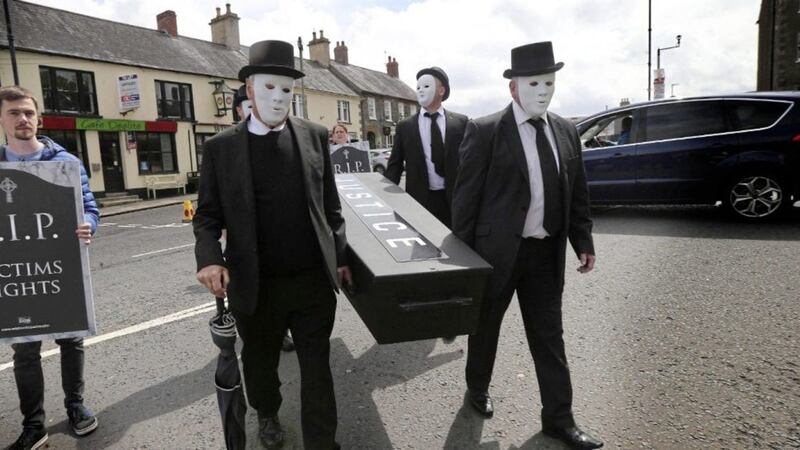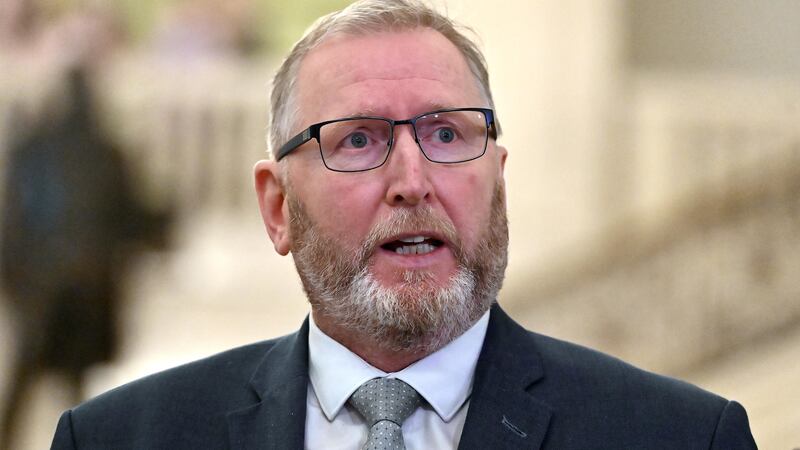A BILL unveiled by the British government to offer immunity from prosecution for Troubles killings will not apply to those who already have a conviction for an offence related to the conflict.
The legislation that was promised last summer by Northern Ireland Secretary of State Brandon Lewis was revealed yesterday, but immediately attracted criticism from those who have previously accused the UK government of wanting an "amnesty" for those responsible for murders during the Troubles.
The Northern Ireland Troubles (Legacy and Reconciliation) Bill offers immunity from prosecution for those who assist a new independent information recovery body, which can investigate crimes from the conflict at the request of bereaved families and others.
The bill would be applied to both members of the security forces and paramilitaries, and those who co-operate will not face prosecution under the plan.
However, those who already have a "conviction for a relevant Troubles-related offence" will be ineligible for immunity.
The legislation also states people already facing prosecution proceedings in active cases when the law is passed would also be denied protection from prosecution.
Following the bill's unveiling yesterday, Mr Lewis said it would encourage more people to come forward with information on more than 1,000 unsolved killings from before 1998.
He added that the plan "will better support victims and families, and help Northern Ireland look to its future and heal divisions caused by its difficult past".
However, the bill was slammed as "a disturbing interference in the justice system" by Grainne Teggart of Amnesty International, who warned: "Access to justice for serious crimes will be permanently removed in Troubles’ related cases".
She added: "Nothing about this Bill is victim-centred and instead dismisses victims’ clear objections to the government closing down paths to justice".
Meanwhile, speaking yesterday at the site of the UVF bomb attack in Dublin's Talbot Street, where 27 people were killed in 1974, Taoiseach Micheál Martin said the 2014 Stormont House Agreement should remain the basis for legacy progress.
"Any attempt to depart from that agreement would need to be discussed by both governments and with all of the parties in an inclusive process. And there would need to be serious and credible engagement with victims and families," he said.
In the Dáil, Sinn Féin president Mary Lou McDonald compared the UK bill to "the actions of a rogue state" and warned it meant the "shredding of the Stormont House Agreement".
She added of the British government: "They treat families and survivors with utter contempt."
The DUP have also attacked the legacy proposals, with east Belfast MP Gavin Robinson warning: "If this Bill undermines access to justice for innocent victims then it will be a further corruption of justice."
"Victims and their families must be at the heart of any new legacy structures. The right to seek justice must be protected," he said.
Mr Robinson also warned of the bill: "There can be no moral equivalence between those who perpetrated violence and those who tried to bring it to an end".
Meanwhile, SDLP leader Colum Eastwood accused the British government of having "abandoned the concept of partnership when it comes to the sensitive politics of Northern Ireland".
"In their rush to protect former soldiers they will shut down routes to justice through inquests and civil cases, shield paramilitary killers and fundamentally alter the rights of those who have lost loved ones," he said.
"All without a serious conversation with those most affected."







